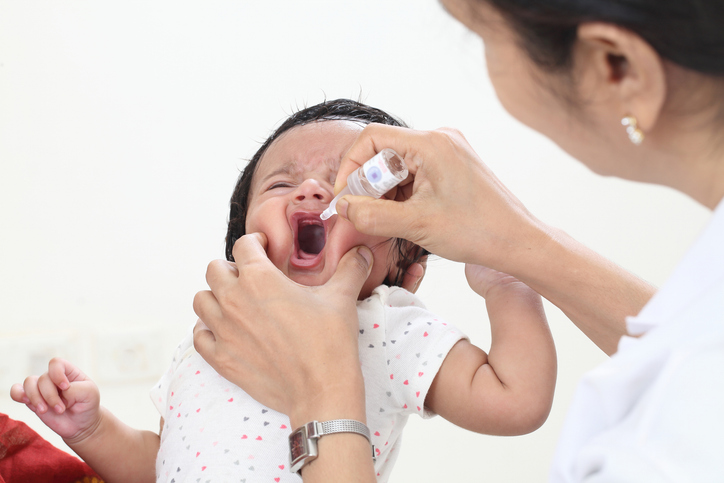The United Nations will start vaccinating some 640,000 children in the Gaza Strip against polio on Sunday, a campaign that relies on daily eight-hour pauses in fighting between Israel and Hamas militants in specific areas of the besieged enclave.
The complex campaign, which is targeting children under age 10, follows confirmation last week that a baby was paralysed by the type 2 polio virus, the first such case in the territory in 25 years.
WHO officials say at least 90% of the children need to be vaccinated twice with four weeks between doses for the campaign to succeed, but it faces huge challenges in Gaza, which has been largely destroyed by nearly 11 months of war.
“It’s not ideal,” Rik Peeperkorn, the World Health Organization’s senior official for the Palestinian territories, told reporters in Geneva on Friday.
“We think it is feasible if all of the pieces of the puzzle are in place,” he said.
The U.N. agency said the campaign would occur in three phases – in central, southern and northern Gaza.
Fighting will pause for at least eight hours on three consecutive days in each phase. The pauses could be extended for a fourth day in each phase, which the WHO said would likely be needed. That would mean each round of vaccinations could take just under two weeks.
But it appears the pauses in fighting will not cover the entirety of each zone. The map appears to show that the pause will take place in a smaller area within each zone.
COGAT referred questions on the map to Israeli Prime Minister Benjamin Netanyahu’s office.
The planned pauses are not part of ceasefire negotiations that have been under way for months to try to agree a halt in the fighting in Gaza and a return of Israeli and foreign hostages in exchange for Palestinian prisoners held by Israel.
“What is now most important is to ensure both the security and access needed to implement the campaign effectively. I don’t need to tell you how disastrous it would be if we were unable to contain this preventable disease – a disease that knows no borders,” acting U.N. aid chief Joyce Msuya said on Thursday.
‘SPACE AND SECURITY’
Tests on wastewater collected on June 23 confirmed in mid-July that the type 2 polio virus had been detected in six samples.
U.N. Secretary-General Antonio Guterres, the WHO and the U.N. children’s agency UNICEF appealed on Aug. 16 for the warring parties to commit to humanitarian pauses to allow the vaccination campaign to take place.
U.S. Secretary of State Antony Blinken said a few days later, during a visit to Tel Aviv, that Washington was working with the Israeli government on a vaccination plan.
“The bottom line is that humanitarians on the ground … must be provided the space and security conditions to distribute vaccines and inoculate the at-risk population and to do so safely. Children’s lives depend on their success,” deputy U.S. Ambassador to the U.N. Robert Wood said on Thursday.
Some 1.2 million vaccine doses have already been delivered to Gaza ahead of the campaign with an additional 400,000 doses en route to the territory, WHO officials said on Friday.
COGAT, the Israeli agency that oversees civilian affairs in the occupied Palestinian territories, has said the vaccination campaign would be coordinated with the Israeli military “as part of the routine humanitarian pauses.” Those pauses for aid have been implemented periodically since the start of Israel’s campaign in Gaza in October.
Hamas has also agreed to the pauses.
WHO, UNICEF and the U.N. Palestinian refugee agency UNRWA will carry out the campaign. Peeperkorn said there would be nearly 400 places where parents could bring their children to receive the oral vaccine.
He said there are also 300 mobile teams that would be used to reach children in more difficult places.
(Reuters)




















